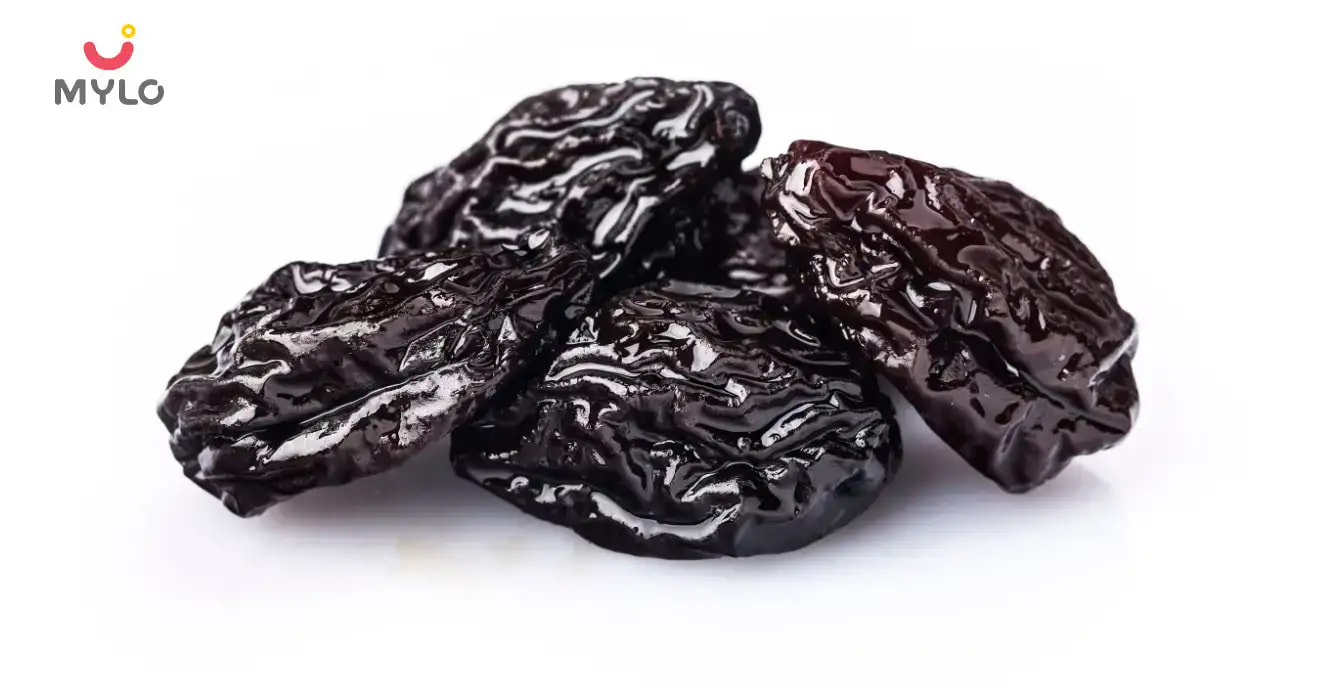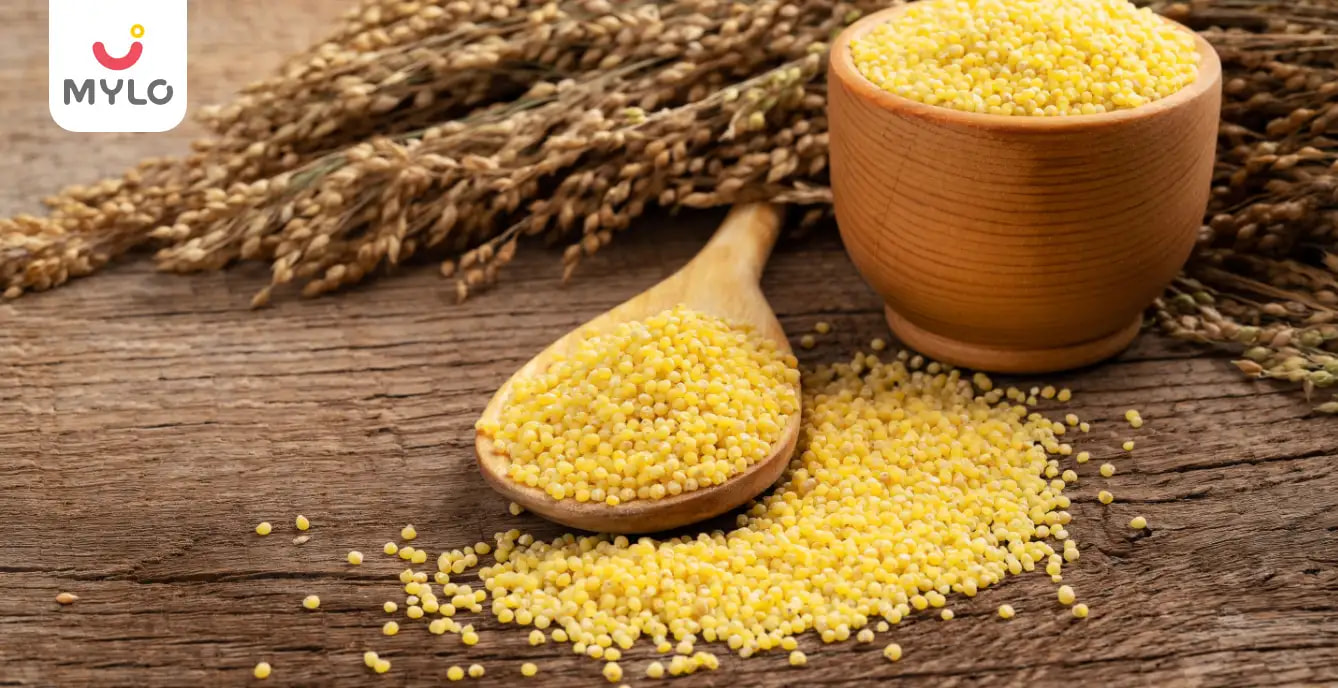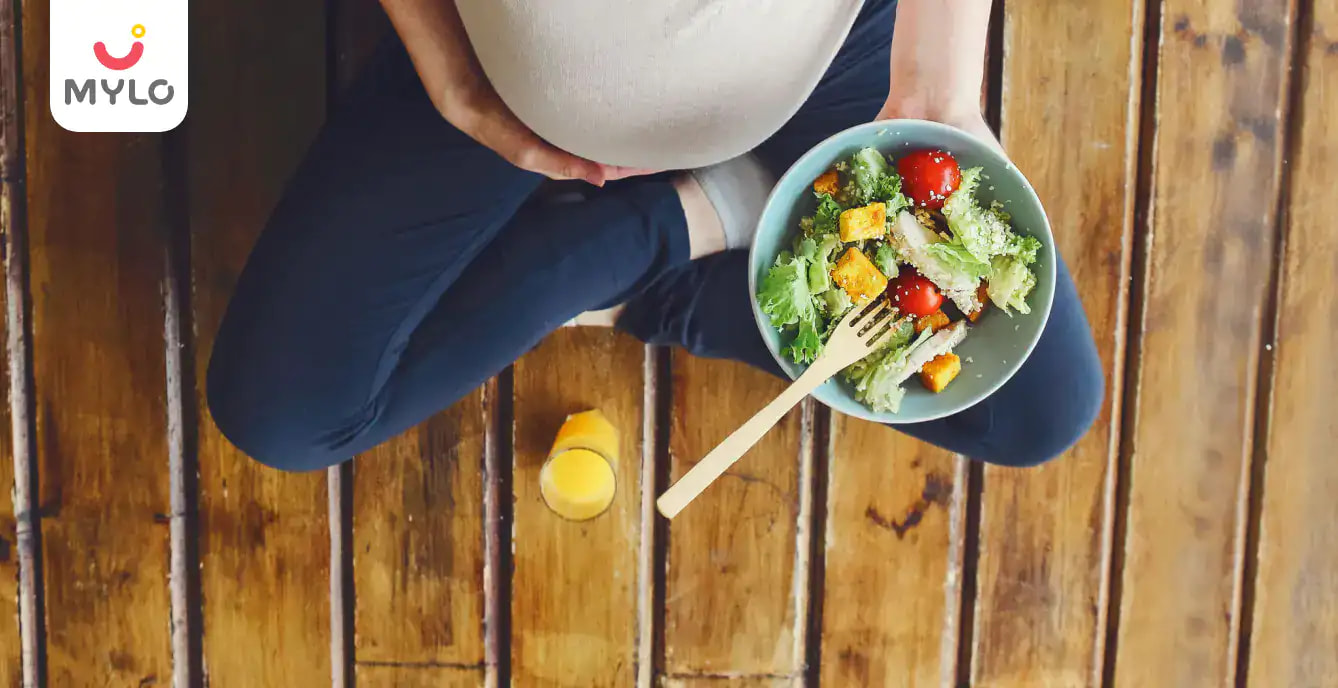Home

Diet & Nutrition

Jaggery in Pregnancy: Benefits & Nutritional Value
In this Article
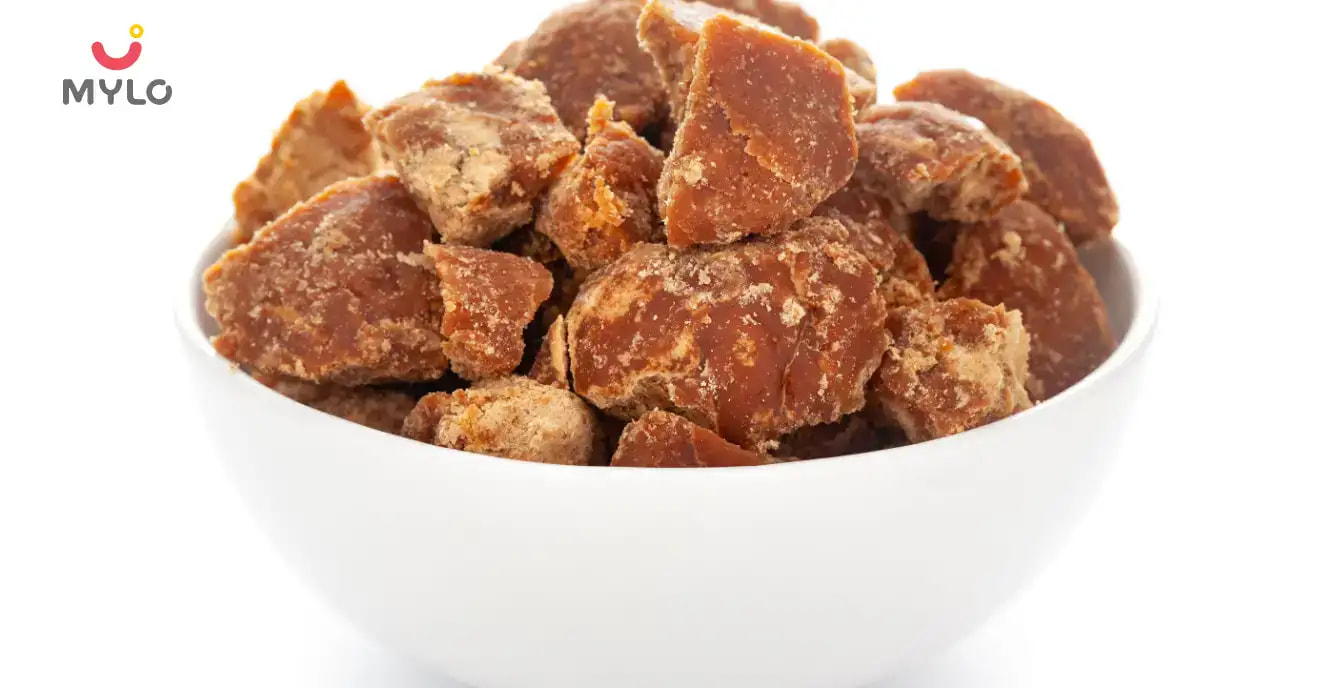
Diet & Nutrition
Jaggery in Pregnancy: Benefits & Nutritional Value
Updated on 30 January 2023
It's common to crave sweets more than usual when pregnant. Hormonal shifts cause periodic ups and downs in temperament and nutritional preferences. For the nine months to go as smoothly as possible, however, a nutritious diet is essential. That being said, before adding jaggery powder to your diet while pregnant, ensure you have a firm grasp on the benefits and worth of this ingredient. The organic variety of jaggery is preferable because it contains no artificial ingredients and thus has greater health benefits.
For many of you who ponder whether jaggery during pregnancy is harmful or harmless, jaggery (gur) can be consumed during pregnancy, but only in small amounts. Due to its high iron content, jaggery can help you meet your recommended daily intake (1). During pregnancy, the natural sugar source benefits the mother's health.
In addition to providing sustenance to the baby during pregnancy, it is also known to cleanse the mother's blood and breast milk. Since jaggery has a similar sweetness to sugar, it can be used as a substitute.
Is Jaggery Safe To Eat During Pregnancy?
Some individuals see jaggery as a healthy alternative to sugar because it contains glucose. This sugar is thought to be unrefined and unprocessed. Any excessive use of glucose, in whatever form it may be found, can have negative health effects.
Can we eat jaggery during pregnancy? Yes, but only in moderation. Because of its high iron and mineral content, jaggery can be helpful during pregnancy. Jaggery can be beneficial during pregnancy if eaten in moderation by clearing out the blood and warding off anemia.
Jaggery Nutritional Value
You may have heard of jaggery, a "superfood sweetener" made primarily from sugar cane and sometimes date palm. More than 70% of high-quality jaggery is made of sucrose, whereas only 10% of glucose and fructose are present, and less than 5% are minerals. The nutritional value may change based on the raw materials utilized (cane or palm).
Half a cup (100 grams) of jaggery contains calcium (40 to 100 milligrams), potassium (1,056 milligrams), magnesium (70 to 90 milligrams), sodium (19 to 30 milligrams), iron (10 to 13 milligrams), phosphorus (20 to 90 milligrams), zinc (0.2 to 0.4 milligrams), manganese (0.2 to 0.5 milligrams), copper (0.1 to 0.9 milligrams), and chloride (5.3mg). Some vitamins are present in extremely minute concentrations.
Is It Necessary To Consume Jaggery During Pregnancy?
Jaggery is a popular sweetener with health benefits due to its nutrients. The following are some of the purported advantages of the sugar substitute. There isn't enough scientific literature data to support these assertions.
- Anemia is prevalent during pregnancy; iron supplements might help prevent this condition.
- Potassium helps restore electrolyte balance and alleviate swelling because of these effects.
- Nutritional support for bones and joints comes from vitamins and minerals.
- Raw sugars are thought to promote digestion by encouraging the production of digestive enzymes. It may aid in bowel regularity.
Benefits Of Consuming Jaggery During Pregnancy
There are many benefits of consuming jaggery in pregnancy. They are:
1. It helps Control Blood Pressure.
Accurate monitoring of blood pressure during pregnancy is crucial. Jaggery can be incorporated into your daily diet to prevent cardiovascular disease, stroke, and kidney troubles. Jaggery has less salt than table sugar and aids in nutrient absorption.
2. High In Antioxidants
Jaggery has potent antioxidant effects. Therefore, it aids in the prevention of cellular damage and protects the health of the developing fetus. In addition, the mother's immune system benefits from the antioxidant characteristics, which aid in preventing widespread diseases.
3. Makes Digestion Easier
When you add jaggery to your diet, you'll notice a significant improvement in your tummy trouble. A healthy digestive system can be maintained through the regular consumption of natural sugar, which stimulates the production of digestive enzymes. Positively, jaggery can help with incontinence.
4. Eases Joint Pain
In addition to its many other uses, jaggery is also of great use to pregnant women because of its positive effects on their bones and muscles. The discomfort and stiffness of spinal arthritis can be alleviated with the help of jaggery.
5. Forbids Anemia
If the mother gets enough iron during pregnancy, she won't get anemia, puerperal septicemia, have a baby with a low birth weight, or give birth too soon. Consumption of jaggery during pregnancy increases the red blood cell count and lessens the likelihood of anemia. It's a tremendously fast-acting energy source and helps pregnant women's immune systems.
6. Controls Retention Of Water
Jaggery can be helpful for pregnant women with fluid retention. Jaggery's high potassium content aids weight maintenance by reducing fluid accumulation. The risk of pulmonary edema is also reduced by jaggery.
7. Blood Cleaning
During pregnancy, consuming a small amount of jaggery each day will help flush the system of harmful toxins and waste. This will safeguard the life that is forming within you.
Possible Side Effects Of Jaggery During Pregnancy
Since jaggery is mostly just unrefined sugar, it could be good for your health, but you should eat less of it. Also, there could be issues with using jaggery that has been tampered with or is not pure.
- A high caloric intake from consuming excessive jaggery may cause obesity.
- If you have gestational diabetes, eating foods high in sugar could worsen your condition.
- Unrefined jaggery may contain bacteria.
Using jaggery instead of ordinary sugar can help you control your sugar intake.
How To Include Jaggery In Your Diet During Pregnancy?
As a multipurpose sweetener, jaggery has many potential applications.
- Mix with liquids like milk or tea.
- Use it in puddings and other sweets.
- Sweeten it up by combining it with peanuts or shredded coconut.
- Mix into baked goods like toffee and cakes.
Jaggery is a sweetener made from date palm or sugar cane that contains more sucrose than glucose. Jaggery, in moderation, is safe to eat while pregnant. In addition, it facilitates healthy diet management and is the superior alternative to sugar. You can get some of the iron you need daily from jaggery. Depending on its composition, jaggery's nutrient content may range. But moderation is essential, as overeating of anything can lead to weight gain.
How Much Jaggery To Eat Everyday During Pregnancy?
Eating 50 grams, or a small piece, of jaggery daily while pregnant is safe, but if you experience any issues, you should see your doctor immediately and cease eating jaggery.
Healthy Recipes Including Jaggery In Pregnancy
Because of its adaptability, jaggery has many applications in cooking and baking. Here are some quick and easy jaggery-based dishes that are perfect for expecting mothers.
1. Jaggery and Finger Millet Cookies
Ingredients:
- Ragi flour: 100 gms
- Wheat flour: 100 gms
- Oats: 40 gms
- Jaggery powder: 120 gms
- Unsalted butter: 160 gms
- Baking powder: 1 teaspoon
- Milk- 4 tablespoons
Recipe
-
Use a dry pan to roast finger millet (ragi) flour for ten minutes. Put in a bowl and let cool.
-
While the flour is cooling, mix powdered wheat flour, jaggery, oats, baking powder, and butter in a separate bowl. Once these ingredients have cooled, stir in the ragi flour.
-
Start kneading the dough after adding the milk (1 tbsp). You can chill the dough in the fridge for up to an hour if you wrap it in plastic wrap first.
-
While that's happening, set the oven temperature to 160 degrees Celsius.
-
Take the dough out of its plastic cover and shape it into balls. After rolling the dough into balls, flatten them with your hands and set them on the baking sheet. Bake for 15 to 20 minutes.
-
Keep warm things away for later. Pair with your favourite hot beverage, like tea or coffee.
2. Peanut Sesame Seeds (Til) Chikki
Ingredients
- Peanuts: 4 cups
- Jaggery: 3 cups
- Ghee: 2 teaspoons
- White Sesame Seeds (til)- 1 cup
Recipe:
- Roast the peanuts and let them cool off before you can remove their skin.
- Divide the peanuts into half.
- Jaggery and ghee should be heated in a pot until the jaggery melts. Add a little water to see if the jaggery gets hardened when exposed to water. In that case, proceed to the next section.
- Turn the flame off, put the peanuts and til into a pot and mix them well.
- Put the jaggery, peanut, and til mixture into a plate that has been greased with ghee.
- Distribute the stuff all over the dish.
- Cut the chikki into pieces while the jaggery is still warm.
- Put together this healthy snack by separating the chikki pieces!
These are just a few recipes that can be a healthy snack and treat during pregnancy. There are plenty of other jaggery recipes you can try but always remember to eat anything and everything in balanced quantities.
Conclusion
Jaggery in pregnancy is not harmful, but you must never forget that anything consumed in excess can be harmful. You can eat moderate jaggery during pregnancy every day and allow your tastebuds the treat they deserve. Jaggery is filled with many health benefits; hence, you should keep away from this oh-so-yummy treat!



Written by
Khushboo Jain
Get baby's diet chart, and growth tips

Related Articles
Related Questions
Influenza and boostrix injection kisiko laga hai kya 8 month pregnancy me and q lagta hai ye plz reply me

Hai.... My last period was in feb 24. I tested in 40 th day morning 3:30 .. That is faint line .. I conculed mylo thz app also.... And I asked tha dr wait for 3 to 5 days ... Im also waiting ... Then I test today 4:15 test is sooooo faint ... And I feel in ma body no pregnancy symptoms. What can I do .

Baby kicks KB Marta hai Plz tell mi

PCOD kya hota hai

How to detect pcos

RECENTLY PUBLISHED ARTICLES
our most recent articles
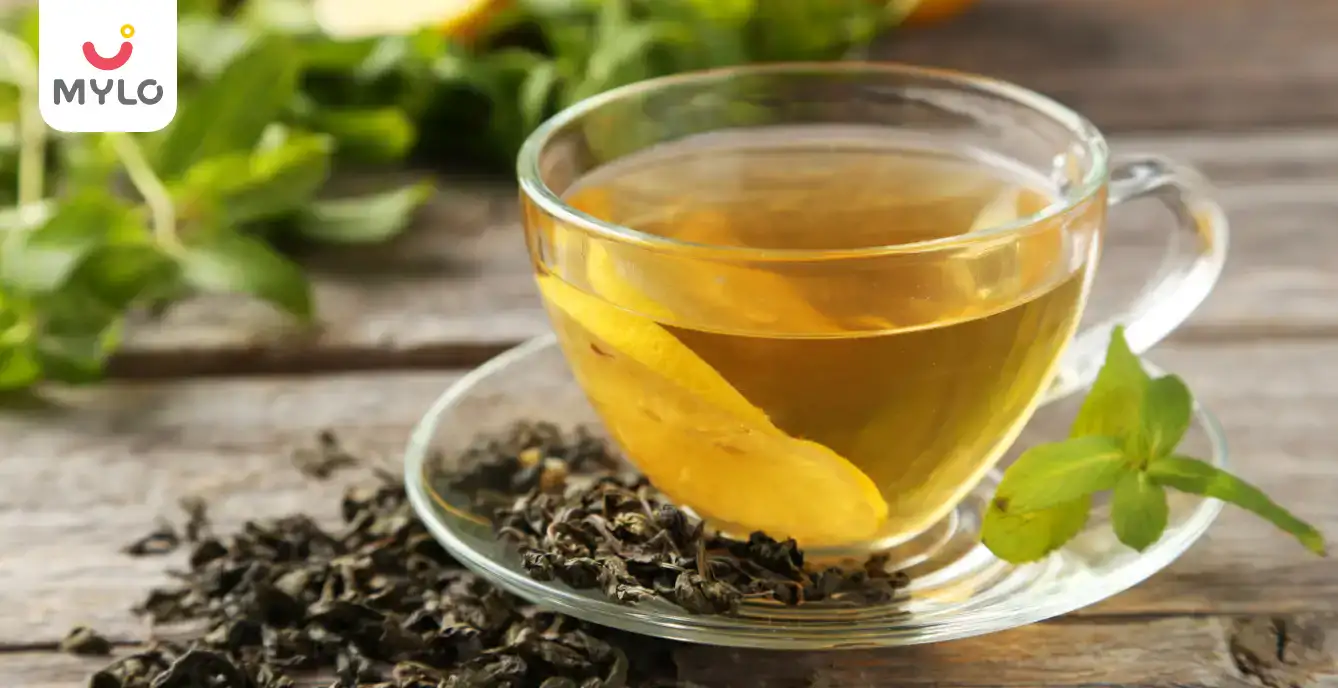
Pregnancy Precautions
Green Tea During Pregnancy: Benefits, Risks & Safety measures
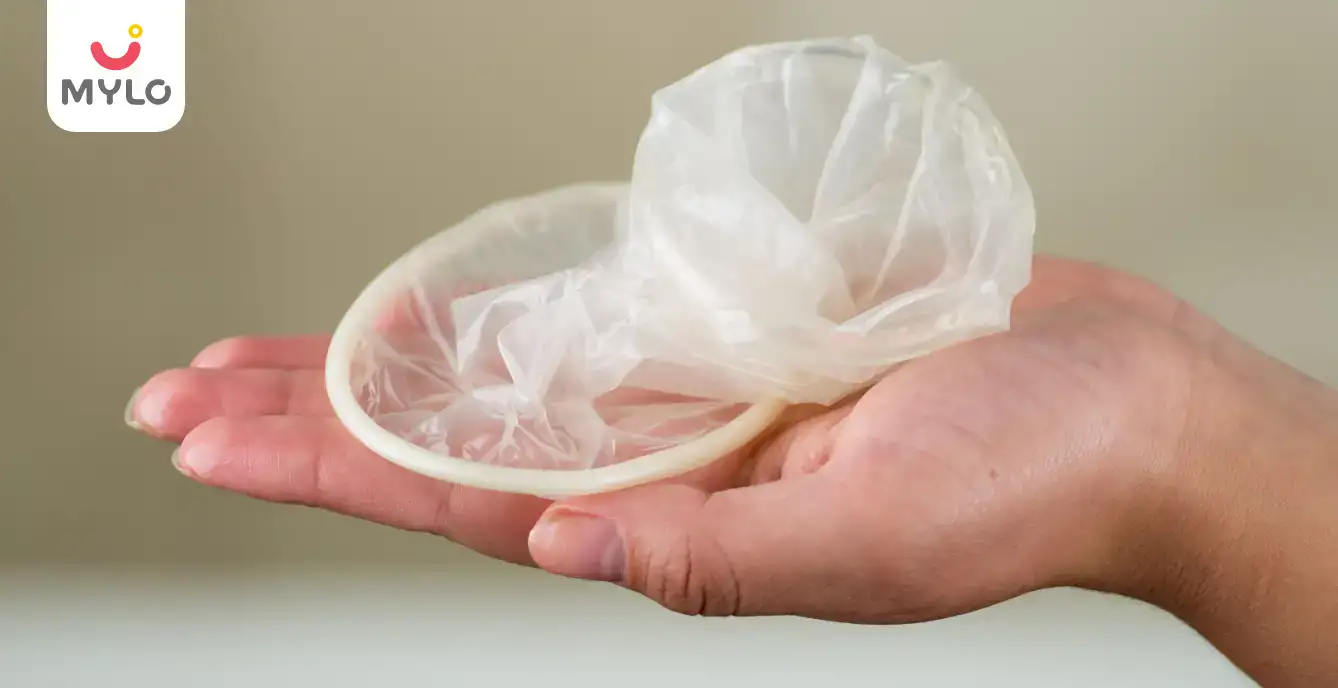
Sex Life
Where Can You Buy Female Condoms?
Illnesses & Infections
Is there anything to worry about when your baby passes urine frequently? Here are some warning signs.

Potty Training
The Do's and Don'ts of how to effectively handle toilet training for your child

Pregnancy Journey
Top 10 Precautions you must take while Celebrating Christmas and New Year During Covid

Episiotomy
Episiotomy Care: Meaning, Reasons & Risks
- 7 Most Popular IVF Myths Busted
- Is It Safe to Have Sex During Pregnancy and After Delivery?
- How to Teach Your Toddler Not to Hit?
- An Expecting Mother's Guide to Vitamins & Supplements in Pregnancy
- Use of Air Conditioners & Coolers for Newborns
- Neonatal Jaundice: Causes, Symptoms & Treatment
- Depression During Pregnancy: Causes, Risks & Treatment
- Discover the 10 Best Shows on Netflix in 2023!
- Eating Spicy Food During Pregnancy: Is it Safe or Not?
- 7 Tips to Help Your Toddler Transition From Potty to Toilet
- Embryo Freezing: Purpose & Outcome
- Exercises to Help Strengthen Weakened Pelvic Floor Muscles
- How Moms are Approaching 2023 - Mylo's Survey This Year End
- Second Trimester of Pregnancy


AWARDS AND RECOGNITION

Mylo wins Forbes D2C Disruptor award

Mylo wins The Economic Times Promising Brands 2022
AS SEEN IN
















- Mylo Care: Effective and science-backed personal care and wellness solutions for a joyful you.
- Mylo Baby: Science-backed, gentle and effective personal care & hygiene range for your little one.
- Mylo Community: Trusted and empathetic community of 10mn+ parents and experts.
Product Categories
baby carrier | baby soap | baby wipes | stretch marks cream | baby cream | baby shampoo | baby massage oil | baby hair oil | stretch marks oil | baby body wash | baby powder | baby lotion | diaper rash cream | newborn diapers | teether | baby kajal | baby diapers | cloth diapers |



